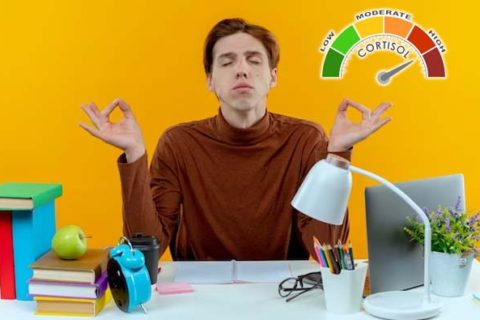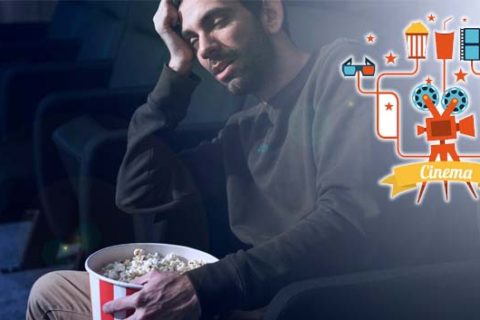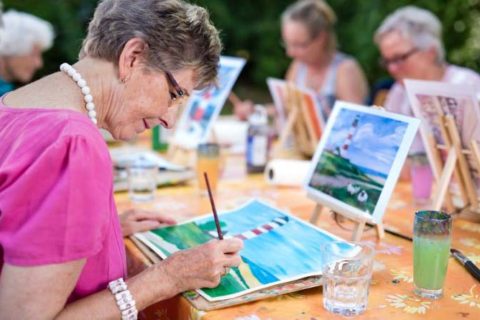Everyone can experience anxiety occasionally because it is known as a normal response to stressful situations. Not everyone might know, but anxiety can be an important warning sign that something is wrong and help people to protect themselves from danger. However, it can become a serious disorder when it occurs often, is disproportionate to stressors, and bothers the experience and quality of life of the adult.
Here is an example. Stella has a grandfather. She knows that her grandfather is struggling with anxiety when he gets out of bed and is unable to fall asleep for hours at night. Sometimes, his heart beats fast and he hears voices from outside. He is often worried about whether the door is locked and the house is secure. Everything started shortly after Stella’s grandmother passed away and it got worse with time until they addressed the issue with his doctors. Even after getting treatment, her grandfather still has bad days sometimes. The good news is that Stella has seen so much improvement in his symptoms. Besides, Stella knows that her grandfather feels much more confident and connected with his life as a father and grandfather.
If you have an elderly person that is currently suffering from anxiety, you may want to check out the symptoms, the causes, and the treatments for anxiety in the elderly below. Everything that is included below is from Kamus Psikologi.
Symptoms of Anxiety in the Elderly
There are a number of different kinds of anxiety disorders in the elderly. The list includes anxiety disorder, social anxiety disorder, panic disorder, obsessive-compulsive disorder, and post-traumatic stress disorder. Neither of them should be considered a normal part of the aging process. The symptoms of anxiety disorders can be very stressful and the elderly need special care to minimize and prevent its symptoms, which might include:
- Shock/shakiness
- Hard to breathe
- Dizziness
- Mild headache
- Sweating
- Nausea
- Digestion problems
- Chest pain
- Headaches
- Eye and vision problems
- Muscle tension or soreness
- Fatigue
- Confusion
- Irrational thoughts
- Forgetfulness
- Nightmares
- Scary thoughts
- Irritability
- Avoidance of activities, places, people, and even thoughts that trigger anxiousness
- Changes in weight, appetite or eating habits
- Sleep disturbances, including sleeping too much or too little
- Resistance to leaving home
- Withdrawal and isolating behavior
- Obsessive thoughts
- Compulsive behavior
- Panic
- Substance abuse
Take note that not every symptom mentioned above must be present for an adult to be diagnosed with an anxiety disorder. However, if an elderly person shows even one or more of these symptoms, it is recommended to consult their doctor about how their discomfort can be addressed.
If left untreated, anxiety symptoms can increase and the elderly may experience a weakened immune system, muscle tension, high blood sugar, nervous system fatigue, digestive issues, ulcers, cardiovascular issues, difficulty breathing, and so on. They are also at greater risk of developing other mental health complications, such as depression and suicidal thoughts. Along with adequate treatment, you can consider some of the stressors in their lives and help ease some of the burdens on the elderly.
Common Causes of Anxiety in the Elderly
Even though anxiety does not always have a specific cause, it often occurs from or is exacerbated by specific environmental and situational factors. As you age, you face challenges and stressors that you may not have faced before. Transitioning from time to time can be difficult and the elderly can face significant changes that can contribute to the development or increase in anxiety. If you can narrow down some of the common triggers of stress and anxiety in the elderly, you can keep an eye out, anticipate anxious responses, and reduce challenges. By creating a more positive and supportive environment for the elderly, they can manage anxiety more effectively and give better treatment.
Below are some anxiety triggers to look out for that are common among the elderly:
- Financial insecurity
- Health issues
- Dementia
- Loss of independence
- Role reversal
- End-of-life planning
- Grief and loss
- Immobility
- Chronic pain
- Changes in sensory perception, including vision loss and diminishing taste and smell
- Isolation
If you know more about the specific issues of your elderly, you can offer support or find the support that they need in these areas. For instance, you might help them to set up professional money management financial services, reconnect with old money or community services to restore isolation, or do exercises to support chronic pain management.
Treatment and Strategies for Coping with Anxiety in Elderly
If you assume your elderly person has an anxiety disorder, it is time for you to seek medical care. Remember that the sooner, the better. By seeing a psychiatrist, you can get an accurate diagnosis and you can find out the best treatment options based on that assessment. The treatment for anxiety may consist of a combination of medication and therapy. However, the doctor will be able to determine the best treatment for the individual and monitor the progress of their recovery over time.
Just like many other physical and mental health disorders in the elderly, appropriate treatment of excessive anxiety should consider the whole person: their home environment, existing support systems or lack thereof, level of isolation, mobility, level of independence and ability to manage necessary daily tasks, health history and active illnesses, and their certain preferences for care. For accessing all of these elements and managing the environment to thrive in, a professional care manager is a great resource. This one considers every relevant detail that will affect the quality of life of the elderly. These experts can help you to develop an individualized plan for your elderly that addresses everything from home safety to nutrition to social engagement to medication management and regular therapy sessions. They can help to arrange appointments for wellness on the spot or at home.
Not only that, a professional care manager can also refer you to a clinician if your elderly person does not already have a doctor who is prepared to treat their anxiety comprehensively. Aside from that, it is also possible for you to advocate for the elderly by offering a doctor your observations of their symptoms and by asking about the things that you can do to support the elderly on a regular basis.
For Example, You Might:
Try to be a good listener by improving your communication overall with certain communication style strategies.
Find local counseling services or in-home psychotherapy to support an aging adult through a range of challenges and especially anxiety.
Help to enroll them into the social day program for positive community support, mental and creative stimulation, group exercise, and more attention from knowledgeable caregivers.
The most important thing is for the elderly to not experience their anxiety alone. As a caregiver, you do not also have to operate alone, as there is a range of support systems for caregivers. Try to explore treatment options for the anxiety of your loved one. Discuss with them about the options they feel comfortable with and about the life they would like to create in recovery from the anxiety that occurs in the elderly. Do not hesitate to start a revitalized life today.
Everyone can experience anxiety occasionally because it is known as a normal response to stressful situations. Not everyone might know, but anxiety can be an important warning sign that something is wrong and help people to protect themselves from danger. However, it can become a serious disorder when it occurs often, is disproportionate to stressors, and bothers the experience and quality of life of the adult.
Here is an example. Stella has a grandfather. She knows that her grandfather is struggling with anxiety when he gets out of bed and is unable to fall asleep for hours at night. Sometimes, his heart beats fast and he hears voices from outside. He is often worried about whether the door is locked and the house is secure. Everything started shortly after Stella’s grandmother passed away and it got worse with time until they addressed the issue with his doctors. Even after getting treatment, her grandfather still has bad days sometimes. The good news is that Stella has seen so much improvement in his symptoms. Besides, Stella knows that her grandfather feels much more confident and connected with his life as a father and grandfather.
If you have an elderly person that is currently suffering from anxiety, you may want to check out the symptoms, the causes, and the treatments for anxiety in the elderly below. Everything that is included below is from Kamus Psikologi.
Symptoms of Anxiety in the Elderly
There are a number of different kinds of anxiety disorders in the elderly. The list includes anxiety disorder, social anxiety disorder, panic disorder, obsessive-compulsive disorder, and post-traumatic stress disorder. Neither of them should be considered a normal part of the aging process. The symptoms of anxiety disorders can be very stressful and the elderly need special care to minimize and prevent its symptoms, which might include:
- Shock/shakiness
- Hard to breathe
- Dizziness
- Mild headache
- Sweating
- Nausea
- Digestion problems
- Chest pain
- Headaches
- Eye and vision problems
- Muscle tension or soreness
- Fatigue
- Confusion
- Irrational thoughts
- Forgetfulness
- Nightmares
- Scary thoughts
- Irritability
- Avoidance of activities, places, people, and even thoughts that trigger anxiousness
- Changes in weight, appetite or eating habits
- Sleep disturbances, including sleeping too much or too little
- Resistance to leaving home
- Withdrawal and isolating behavior
- Obsessive thoughts
- Compulsive behavior
- Panic
- Substance abuse
Take note that not every symptom mentioned above must be present for an adult to be diagnosed with an anxiety disorder. However, if an elderly person shows even one or more of these symptoms, it is recommended to consult their doctor about how their discomfort can be addressed.
If left untreated, anxiety symptoms can increase and the elderly may experience a weakened immune system, muscle tension, high blood sugar, nervous system fatigue, digestive issues, ulcers, cardiovascular issues, difficulty breathing, and so on. They are also at greater risk of developing other mental health complications, such as depression and suicidal thoughts. Along with adequate treatment, you can consider some of the stressors in their lives and help ease some of the burdens on the elderly.
Common Causes of Anxiety in the Elderly
Even though anxiety does not always have a specific cause, it often occurs from or is exacerbated by specific environmental and situational factors. As you age, you face challenges and stressors that you may not have faced before. Transitioning from time to time can be difficult and the elderly can face significant changes that can contribute to the development or increase in anxiety. If you can narrow down some of the common triggers of stress and anxiety in the elderly, you can keep an eye out, anticipate anxious responses, and reduce challenges. By creating a more positive and supportive environment for the elderly, they can manage anxiety more effectively and give better treatment.
Below are some anxiety triggers to look out for that are common among the elderly:
- Financial insecurity
- Health issues
- Dementia
- Loss of independence
- Role reversal
- End-of-life planning
- Grief and loss
- Immobility
- Chronic pain
- Changes in sensory perception, including vision loss and diminishing taste and smell
- Isolation
If you know more about the specific issues of your elderly, you can offer support or find the support that they need in these areas. For instance, you might help them to set up professional money management financial services, reconnect with old money or community services to restore isolation, or do exercises to support chronic pain management.
Treatment and Strategies for Coping with Anxiety in Elderly
If you assume your elderly person has an anxiety disorder, it is time for you to seek medical care. Remember that the sooner, the better. By seeing a psychiatrist, you can get an accurate diagnosis and you can find out the best treatment options based on that assessment. The treatment for anxiety may consist of a combination of medication and therapy. However, the doctor will be able to determine the best treatment for the individual and monitor the progress of their recovery over time.
Just like many other physical and mental health disorders in the elderly, appropriate treatment of excessive anxiety should consider the whole person: their home environment, existing support systems or lack thereof, level of isolation, mobility, level of independence and ability to manage necessary daily tasks, health history and active illnesses, and their certain preferences for care. For accessing all of these elements and managing the environment to thrive in, a professional care manager is a great resource. This one considers every relevant detail that will affect the quality of life of the elderly. These experts can help you to develop an individualized plan for your elderly that addresses everything from home safety to nutrition to social engagement to medication management and regular therapy sessions. They can help to arrange appointments for wellness on the spot or at home.
Not only that, a professional care manager can also refer you to a clinician if your elderly person does not already have a doctor who is prepared to treat their anxiety comprehensively. Aside from that, it is also possible for you to advocate for the elderly by offering a doctor your observations of their symptoms and by asking about the things that you can do to support the elderly on a regular basis.
For Example, You Might:
Try to be a good listener by improving your communication overall with certain communication style strategies.
Find local counseling services or in-home psychotherapy to support an aging adult through a range of challenges and especially anxiety.
Help to enroll them into the social day program for positive community support, mental and creative stimulation, group exercise, and more attention from knowledgeable caregivers.
The most important thing is for the elderly to not experience their anxiety alone. As a caregiver, you do not also have to operate alone, as there is a range of support systems for caregivers. Try to explore treatment options for the anxiety of your loved one. Discuss with them about the options they feel comfortable with and about the life they would like to create in recovery from the anxiety that occurs in the elderly. Do not hesitate to start a revitalized life today.

A bookworm and researcher especially related to law and citizenship education. I spend time every day in front of the internet and the campus library.





